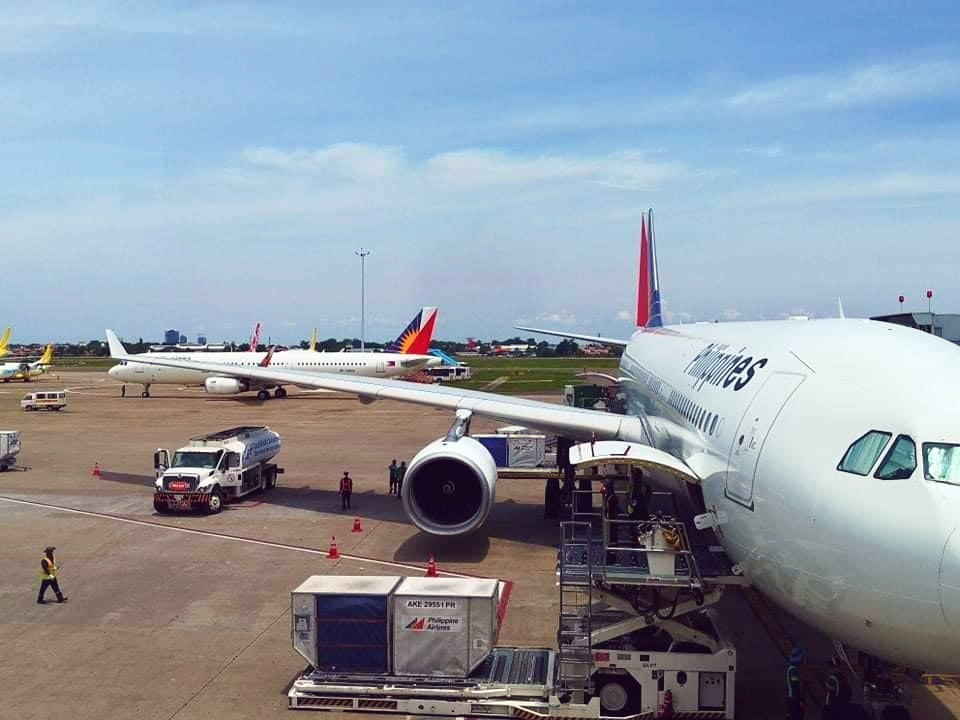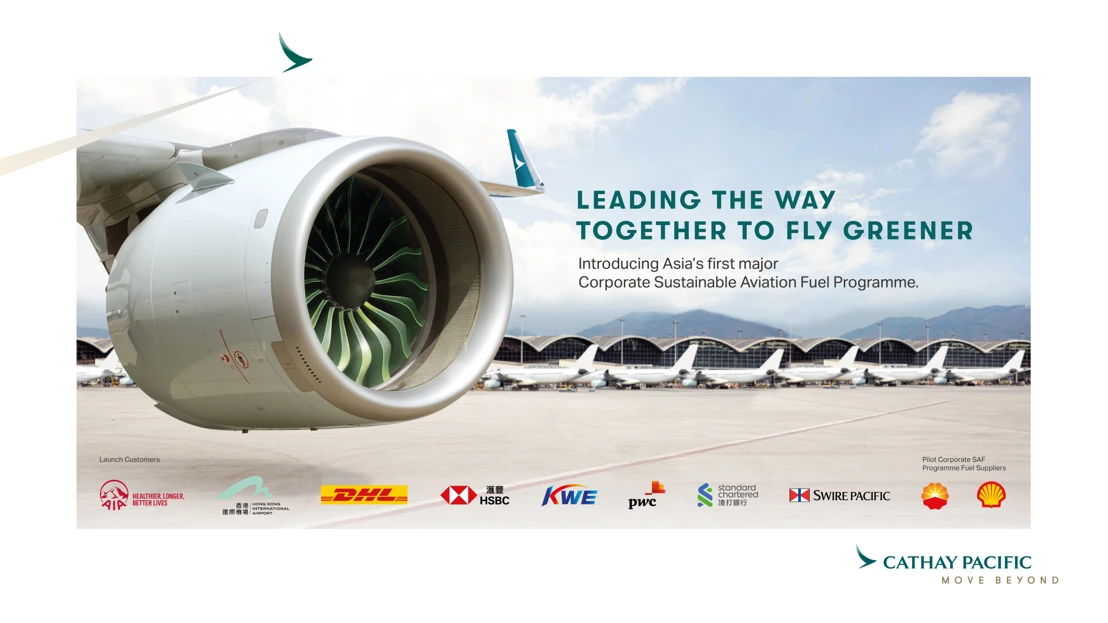Cathay Pacific is launching its pilot Corporate Sustainable Aviation Fuel (SAF) Programme, the first major programme of its kind in Asia. The programme provides corporate customers the opportunity to reduce their carbon footprint from business travel or airfreight by contributing to the use of SAF uplifted for the first time from Hong Kong International Airport (HKIA) on Cathay Pacific flights.
Cathay Pacific is kick-starting the programme with eight corporates as launch customers, including AIA, Airport Authority Hong Kong (AAHK), DHL Global Forwarding, HSBC, Kintetsu World Express (KWE), PwC China, Standard Chartered, and Swire Pacific. As leaders in corporate climate action, the launch customers are committed to reducing the climate impact from their business travel and/or airfreight activities by helping to facilitate the wider adoption of renewable energy by the air transport industry through the use of SAF.
Chief Executive Officer Augustus Tang said: “We continue to pioneer our industry’s move towards more substantial use of SAF, especially in Asia. Last year, we were among the first carriers in the world to announce a target of 10% SAF for our total fuel use by 2030. We have made significant progress since then and are pleased that uplifting SAF from HKIA is now a reality with the strong support of the local authorities and fuel suppliers.
“In addition to our launch corporate customers, we have received a very enthusiastic response from other corporates and we welcome other interested companies to sign-up to reduce their indirect emissions from flight-related activities. Climate change is a global challenge and we need to work together to tackle it.
“We see the launch of this Corporate SAF Programme as an important step for us to engage other like-minded organisations, and a first step in sending an important demand signal to the SAF supply chain that there is firm interest in the region, not only from airlines, but also the aviation value-chain all the way to end users for both passenger and cargo transportation.”
SAF is considered the most important way to decarbonise airline operations in the next few decades, before alternatively powered aircraft can be widely deployed in commercial operations. Compared to conventional jet fuel, SAF can reduce up to 100% carbon emissions on a lifecycle basis, depending on the SAF technology used.
The SAF used for the launch of this programme is made from used cooking oil and animal fat waste. It is made available to us by our pilot Corporate SAF Programme fuel suppliers PetroChina and Shell. The very first uplift of SAF at HKIA is made possible through a collaborative effort with many stakeholders along the supply chain and various government departments. SAF used in this programme will go through the normal aviation-fuelling infrastructure, which provides important learning for developing ongoing regular SAF supply from HKIA in the future.
Cathay Pacific is undertaking a multi-pronged approach towards a green recovery and long-term transition towards its goal of net-zero carbon emissions by 2050. Apart from its increased usage of SAF, Cathay Pacific’s carbon reduction roadmap includes fleet modernisation, operational efficiency improvements, leveraging on emerging technology breakthroughs to decarbonise aviation, and offering carbon offsets through its Fly Greener programme. Additional information about our Corporate SAF Programme can be found here.
Press release from Cathay Pacific

























Leave a comment